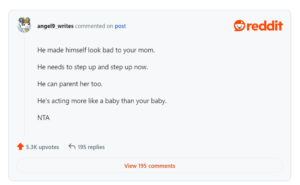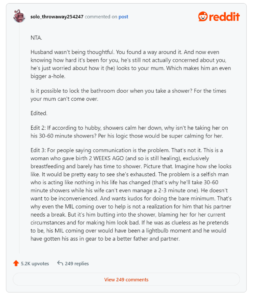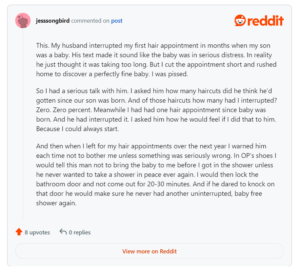A mother looking stressed with her child | Source: Shutterstock
Another suggestion proposed by a commenter was for the OP to lock the door temporarily as a means of asserting her need for privacy and to impart a lesson to her husband on respecting boundaries. Furthermore, a Reddit user remarked that the husband’s behavior reflected poorly on him in front of his mother-in-law, emphasizing the importance of him realizing his capacity to care for his daughter without always relying on his wife. The discussion delved deeper into the dynamics of communication and support within the relationship, with commenters highlighting the husband’s misplaced priorities, as evidenced by his concern over his wife calling her mother rather than prioritizing her well-being. “You found a solution despite the challenges you faced. Yet, his primary concern isn’t your welfare but how it appears to your mom,” noted one commenter.
A man sitting next to a crib looking stressed | Source: Shutterstock
One mother shared an anecdote wherein her husband once interrupted her hair appointment, prompting her to have a serious conversation with him. She made him reflect on the frequency of his haircuts since their baby’s arrival and instructed him never to disturb her alone time unless absolutely necessary. Encouraging the OP to have a similar conversation with her husband, the commenter emphasized the importance of asserting one’s need for personal time.
A couple fighting | Source: Shutterstock
Another commenter recounted her experience of initially shouldering the majority of parenting responsibilities until she and her husband established a more equitable partnership. Initially, she took the lead in soothing their fussy baby at night. However, after three days, she insisted on using earplugs and requested her husband to wake her only for feeding, allowing him to care for the baby during the night. This shift led to a more balanced and cooperative parenting dynamic.















